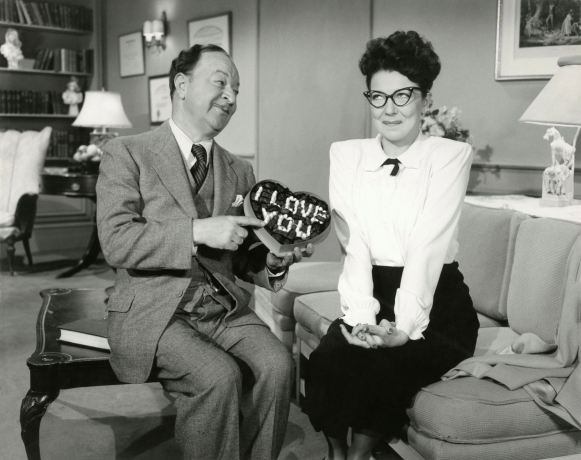Saying 'I love you' for the first time, or even the hundredth, can carry a weight of expectation. The words may be simple, but finding the right moment, tone, and language to say them can feel anything but. In fact, many people wonder how to say 'I love you' without saying 'I love you'—especially when trying to avoid sounding rehearsed or cliché.
Sometimes, finding another word for love makes all the difference. In a world full of greeting cards, movie quotes, and social media captions, expressing love authentically is both an art and a challenge.
In this article, we'll explore meaningful, original ways to share your feelings—without sounding like a rom-com script. Read on!
What to say before the 'I love you' confession
Before you understand what to say before the ultimate expression of 'I love you', building a robust emotional base is crucial. Here are creative ways to deepen intimacy and appreciation:
- Show genuine interest. Focus on their aspirations and daily stories, affirming that you deeply value their thoughts;
- Appreciate the little things. Praise their everyday efforts with specific compliments, like admiring their kindness or creativity;
- Intentional conversations. Discuss plans together, demonstrating shared commitment and looking forward to the future;
- Gratitude for presence. Highlight their importance using heartfelt expressions, like a simple "I feel better when you're near," or crafting a personalized visual message or mood board (using HD visuals from DepositPhotos), stressing their unique impact on your life;
- Vulnerability. Openly share personal challenges and triumphs to strengthen your emotional connection.
How to say 'I love you' without saying 'I love you'

Expressing your feelings creatively can deepen intimacy without relying on traditional phrases. In fact, 92% of Americans agree that "actions speak louder than words" in relationships, highlighting the power of non-verbal expressions of love. Here are several nuanced ways to communicate love in your own voice:
1. Express through compliments focused on character
Compliments focused on character are especially powerful. They go beyond surface-level praise by recognizing the intrinsic qualities that make someone special, like resilience, empathy, or quiet strength.
Instead of directly saying 'I love you', highlight what you genuinely admire, such as: "You inspire me every day," "I admire the way you handle challenges," or "Your kindness changes the way I see the world."
These sincere, specific acknowledgments emphasize personal values and emotional depth, reinforcing trust and intimacy. Authenticity is key, as thoughtful words rooted in real observation help strengthen bonds and gently pave the way for deeper confessions.
2. Use metaphors and poetic language
When you're searching for what to say before 'I love you', these imaginative expressions can speak volumes.
Phrases like "You're the calm in my storm," "Being with you feels like coming home," or "You're the light that brightens my darkest days" paint vivid emotional pictures that resonate on a deeper level. Saying "You are my guiding star" conveys admiration in a way that feels personal and profound.
Poetry emerges not just in words, but in the imagery they evoke—enhancing intimacy and offering another word for love entirely.
3. How commitment and future intentions
When you speak with sincerity about shared dreams or lasting intentions, you offer something more enduring than words—you reveal emotional investment.
Phrases like "I want to build a life with you," "You're the person I see in my future," or "Being with you feels like where I'm meant to be" carry powerful weight. Even a gentle statement like "You're my today and all my tomorrows" can resonate more deeply than a rehearsed confession.
These expressions help define what to say before life-changing declarations, creating clarity, trust, and a sense of true partnership.
4. Share gratitude for their presence
Appreciating someone's presence can turn a simple 'thank you' into a deeply meaningful expression of affection. Genuine gratitude is one of the greatest ways to show how much someone matters, especially before a grand declaration.
Saying "Your presence makes everything brighter," "I'm so grateful to have you by my side," or "Thank you for being you" conveys more than politeness—it affirms their emotional significance in your life.
Small, thoughtful gestures, like a handwritten note or a meaningful memento, can amplify this sentiment, creating an atmosphere of sincerity and care.
5. Focus on emotional connection and vulnerability
Sharing personal stories, fears, and reflections invites a deeper level of closeness, building trust and authenticity. Vulnerability creates a safe emotional space where love isn't just spoken but truly felt. In fact, 93% of people prioritize emotional vulnerability in a partner.
Phrases like "With you, I can be my true self," "I feel understood and accepted when I'm with you," or "You've changed how I see love" gently express deep affection without direct declarations.
They reflect a bond rooted in emotional truth, helping you recognize when to say 'I love you'—not as a milestone, but as a natural extension of the connection you've built.
6. Use playful or lighthearted expressions
In relationships where laughter plays a central role, humor becomes a unique language of affection—lighthearted, sincere, and deeply personal.
Saying things like "You're my favorite weirdo," "I'm hooked on your smile," or "You make my heart do silly things" keeps the mood fun while still expressing

genuine emotion. Playful phrases like "You're the guacamole to my chips" blend joy with intimacy.
Humor adds spontaneity and charm, enriching daily exchanges with warmth and authenticity.
What's another word for love that captures deep emotion?
While nothing replaces the depth of 'love', here are some alternatives that add nuance:
- Adoration—a quiet, reverent kind of affection;
- Devotion—implies loyalty and commitment;
- Fondness—warm and sincere, especially in early stages;
- Cherish—emotionally rich, signaling long-term value.
These words are particularly helpful when you're not yet ready to say 'I love you too', or if you're crafting a message that avoids clichés.
When to say 'I love you' and how to make it count
There's no perfect formula for when to say 'I love you', but timing matters. It should come from emotional clarity, not pressure or routine. If you've built trust, shared vulnerability, and feel connected, the right moment will likely feel natural.
Forget dramatic settings; sometimes, the most meaningful 'I love you' happens during a quiet walk, a deep talk, or a shared laugh in the kitchen.
Conclusion
Saying 'I love you' doesn't have to be a grand performance. Sometimes, the most meaningful declarations are rooted in sincerity, surprise, and everyday moments. Whether you're exploring how to say 'I love you' without saying 'I love you' or wondering what to say before the confession, the key is to make it personal. Love is unique in every relationship, so let your words reflect that.






